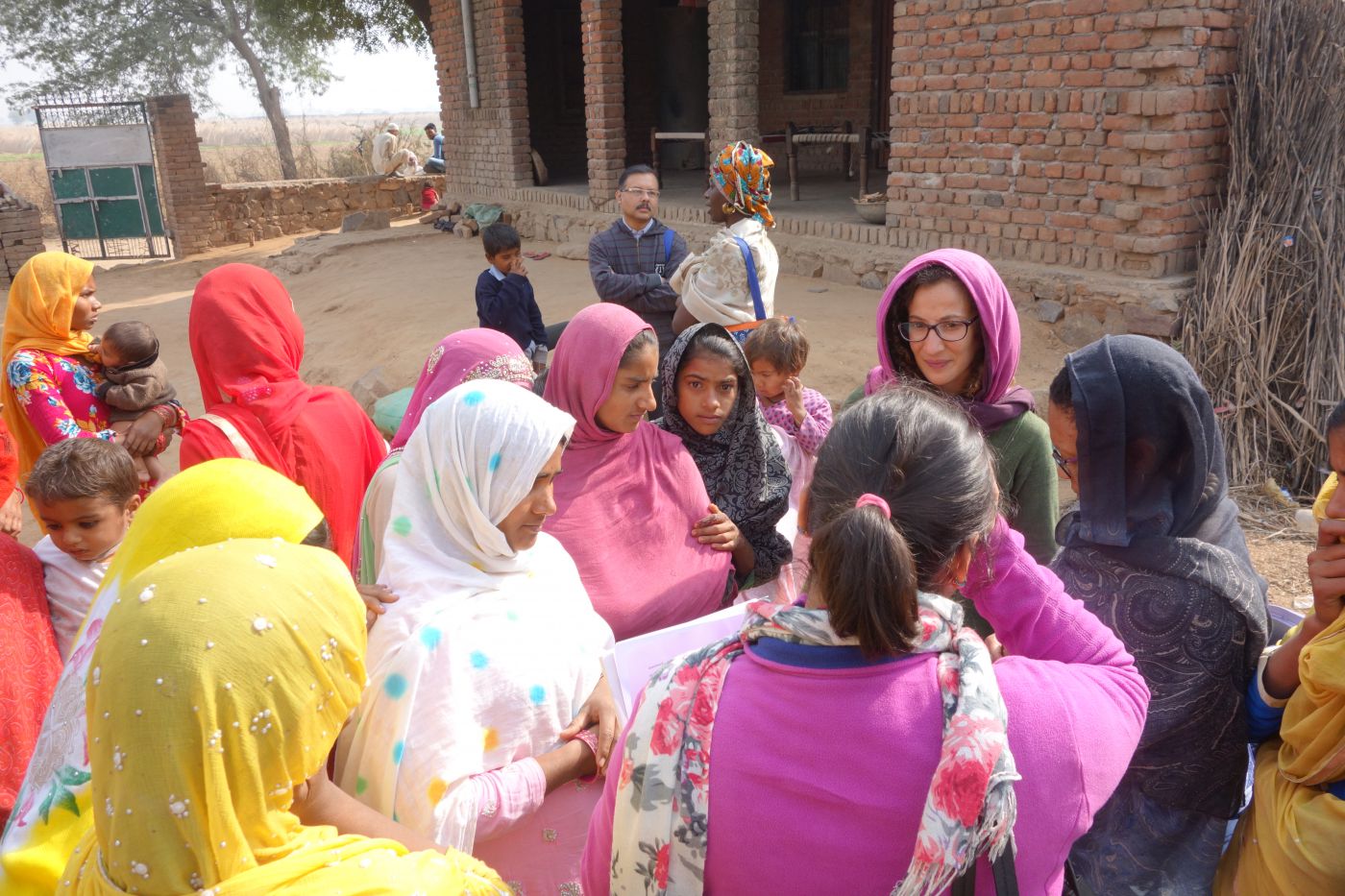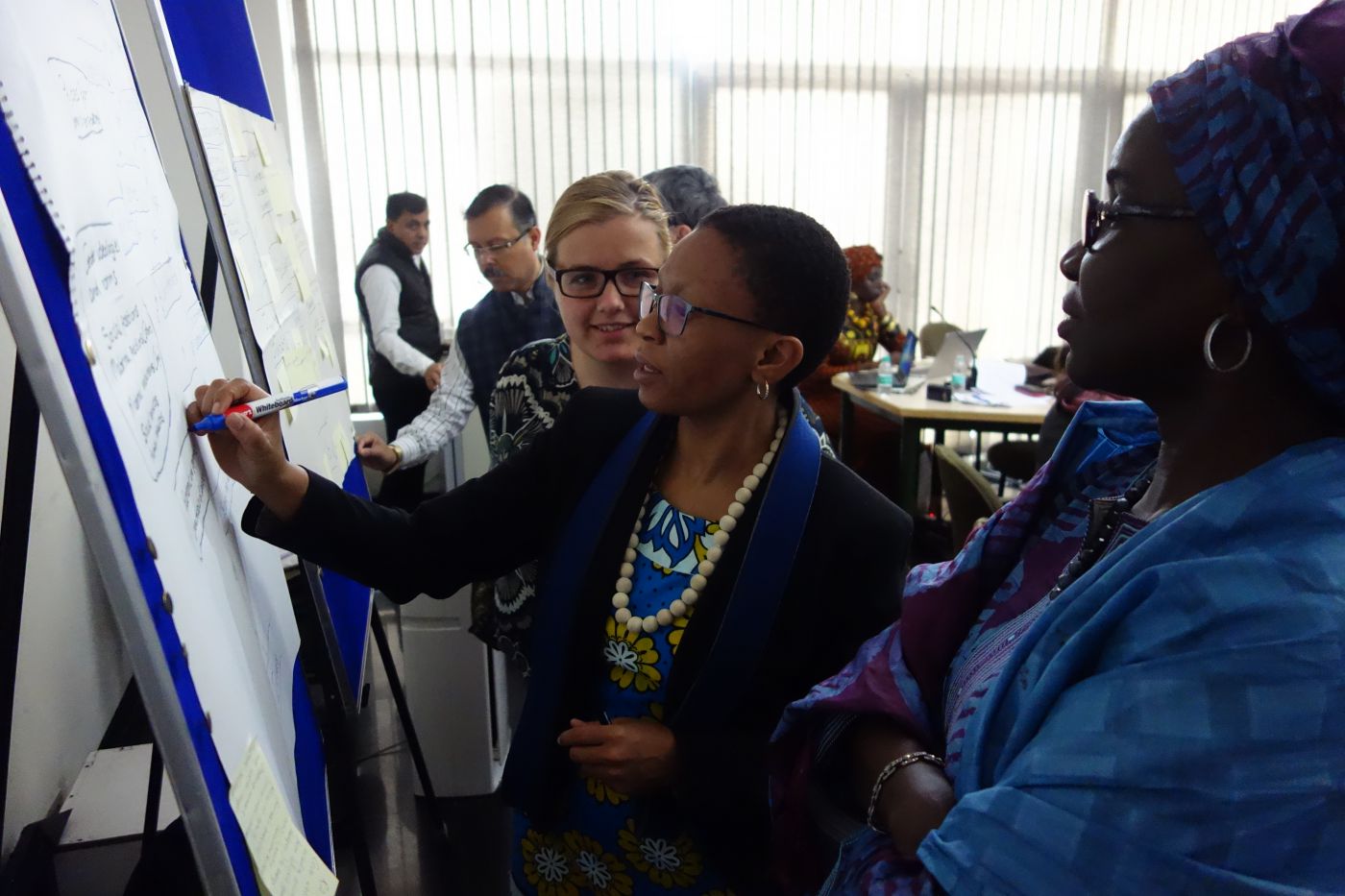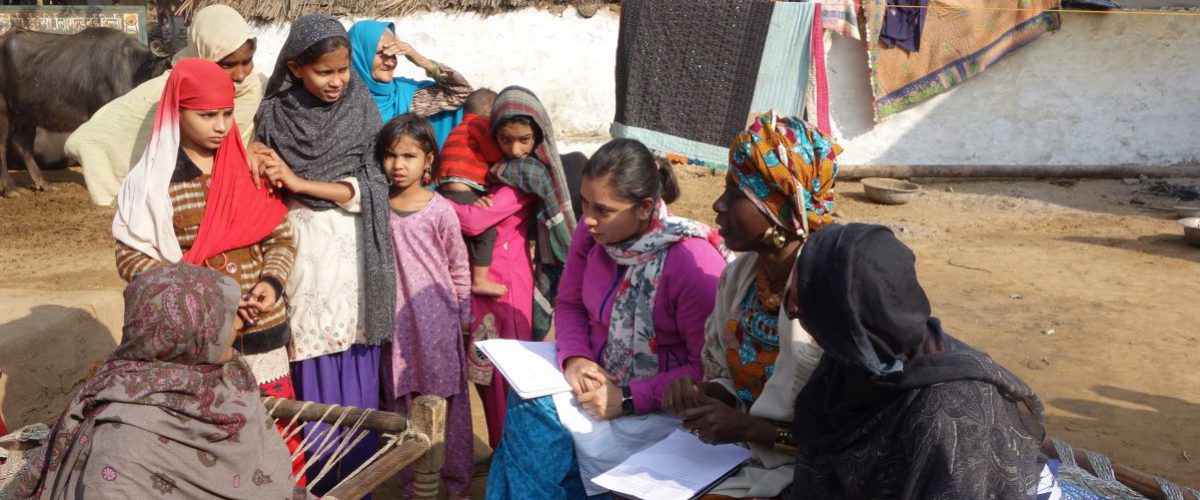By Shukri Abdulkadir, ENERGIA Programme Officer
“What do women want?” It was this age-old question that formed the central focus of the International Workshop on Gender and Energy, held on December 12, 2016 and the subsequent annual Gender and Energy Research Programme meeting. The international workshop presented a host of insights on energy and empowerment from stakeholders including policy makers. The aim of the programme meeting was to enhance synergy and identify opportunities for collaboration between research projects as well as to strengthen each research project through exchange on initial findings, methodologies and mutual learning. Both events were organised and hosted by the team conducting one of the programme’s research areas: ‘Exploring Factors that Enhance Women’s Empowerment through Electrification‘ (EFEWEE). Both took place in New Delhi, India.

After the programme meeting, the participants of the Gender and Energy Research Programme, including representatives of research institutions, NGOs and private companies conducting the research, as well as ENERGIA staff, went on a field visit to a small village in the Nuh district. The purpose of the field visit was to get a taste of the research as being performed by the EFEWEE team, on how electrification impacts women’s empowerment. It was very interesting and insightful to talk to the women and men in the village, and get an idea of ‘what women want’ regarding energy services. The participants were divided into three smaller groups of 4 to 5 persons in order to facilitate and strengthen interaction with the women and men in the village.
The Energy and Resources Institute (TERI), one of the research teams of the ENERGIA Gender & Energy Research programme and co-organizer of this field visit, has implemented solar lighting and cooking solutions in the village in the Nuh district as part of the “Lighting a Billion Lives” programme. The women my group interacted with told us about how this has impacted their lives. They told us that for them, the ability to walk (safely) around the village due to street lighting was an important positive impact of electrification in their village. In other groups, the women spoke about how solar power complements the electricity from the grid which is not available in the evenings due to load sharing. Aside from this, the women I spoke to said that the improved cookstoves introduced by TERI allowed them to spend less time on cooking meals whilst also not losing a whole morning gathering fuel. The women in another group did not have an issue with collecting fuel, as firewood was purchased in bulk and brought back by motorbike.
However, the women also shared experiences that challenge the commonly held assumption that access to electricity benefits women, including for their empowerment and agency. Prompted by the participants’ questions, the women for example revealed that although lighting has provided them with many benefits it also has “dark side” as it prolongs women’s workday and adds to their daily chores. A young woman in the village noted that while the improved cookstove reduces the time she spends on preparing meals, it does not allow her to do her other chores in the house while the meal is cooking, in contrast to the more time-consuming traditional cookstove. This appeared to be one of the reasons why many households in possession of a modern cookstove still frequently use traditional cookstoves. The improved cookstove is used only for preparing certain dishes, while the traditional stove is still being used for every meal.
This relates to the central research of the EFEWEE team. There is very little evidence on this at the moment and the research intends to provide insights on how to strengthen the policies and practices that enhance women’s empowerment and agency, and identify those that have a restrictive or negative impact.
Our interaction with an older woman in the village provided noteworthy insight on women’s agency in the purchasing of appliances for the household. When we asked who makes the decision to buy electronic appliances in her house, she proudly replied that she “decides what to buy inside the house”. The question that came to mind was: “Can we define empowerment and agency as women’s ability to make decisions on which appliances to purchase, which could potentially reduce the time she spends on preparing food and household chores?” Little by little, during our conversations with the women and men, it became clear to us that empowerment and agency come in various forms.

Within our own research programme, the teams explore the concept of empowerment and agency within the energy sector in many ways, including which policies and practices enhance women’s empowerment through electrification (RA1), the gendered impacts of energy subsidies reform on energy access (RA4) as well as exploring the bottom-up approach of empowering women to demand energy access (RA3). Other research teams also include empowerment in their research, such as through looking at energy choices in the informal food sector and (RA2), and the possibility of fostering women empowerment through village-level enterprises (RA5).
In the past decade, awareness and understanding within the energy sector, that energy access and use have different impacts on women and on men, have increased. What is needed now, is empirical evidence to support this premise. This evidence in turn, needs to be translated into concrete proposals for policies and changes in practice that women and men can benefit from. This need for empirical evidence on the links between gender, energy and poverty was a reiterated message throughout both, the above mentioned international workshop on Gender and Energy and the more internal Research Programme meeting.
Coming back to the age-old crucial question that is: “What do women want?” Many refer to a verse written in the mid-15th century, wherein King Arthur goes on a quest to seek the answer to this question. After an unsuccessful yearlong search, he finally succeeds to get the correct answer from a woman, namely that all women want is sovereignty, the choice to define and rule their own lives. Access to energy is key in opening up a new world of opportunities for women and men in developing countries. However, it is crucial to involve and hear their voices in how to minimize the negative impacts and maximise the positive impacts and opportunities associated with energy access.











Follow us on: